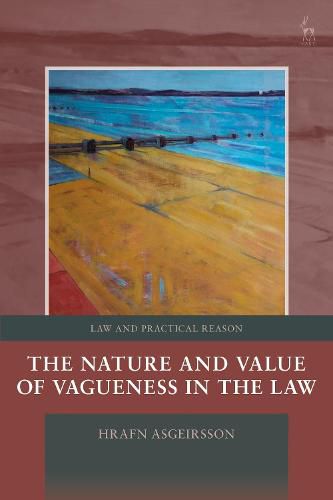Readings Newsletter
Become a Readings Member to make your shopping experience even easier.
Sign in or sign up for free!
You’re not far away from qualifying for FREE standard shipping within Australia
You’ve qualified for FREE standard shipping within Australia
The cart is loading…






Lawmaking is - paradigmatically - a type of speech act: people make law by saying things. It is natural to think, therefore, that the content of the law is determined by what lawmakers communicate. However, what they communicate is sometimes vague and, even when it is clear, the content itself is sometimes vague.
This monograph examines the nature and consequences of these two linguistic sources of indeterminacy in the law. The aim is to give plausible answers to three related questions: In virtue of what is the law vague? What might be good about vague law? How should courts resolve cases of vagueness? It argues that vagueness in the law is sometimes a good thing, although its value should not be overestimated.
It also proposes a strategy for resolving borderline cases, arguing that textualism and intentionalism - two leading theories of legal interpretation - often complement rather than compete with each other.
$9.00 standard shipping within Australia
FREE standard shipping within Australia for orders over $100.00
Express & International shipping calculated at checkout
Lawmaking is - paradigmatically - a type of speech act: people make law by saying things. It is natural to think, therefore, that the content of the law is determined by what lawmakers communicate. However, what they communicate is sometimes vague and, even when it is clear, the content itself is sometimes vague.
This monograph examines the nature and consequences of these two linguistic sources of indeterminacy in the law. The aim is to give plausible answers to three related questions: In virtue of what is the law vague? What might be good about vague law? How should courts resolve cases of vagueness? It argues that vagueness in the law is sometimes a good thing, although its value should not be overestimated.
It also proposes a strategy for resolving borderline cases, arguing that textualism and intentionalism - two leading theories of legal interpretation - often complement rather than compete with each other.